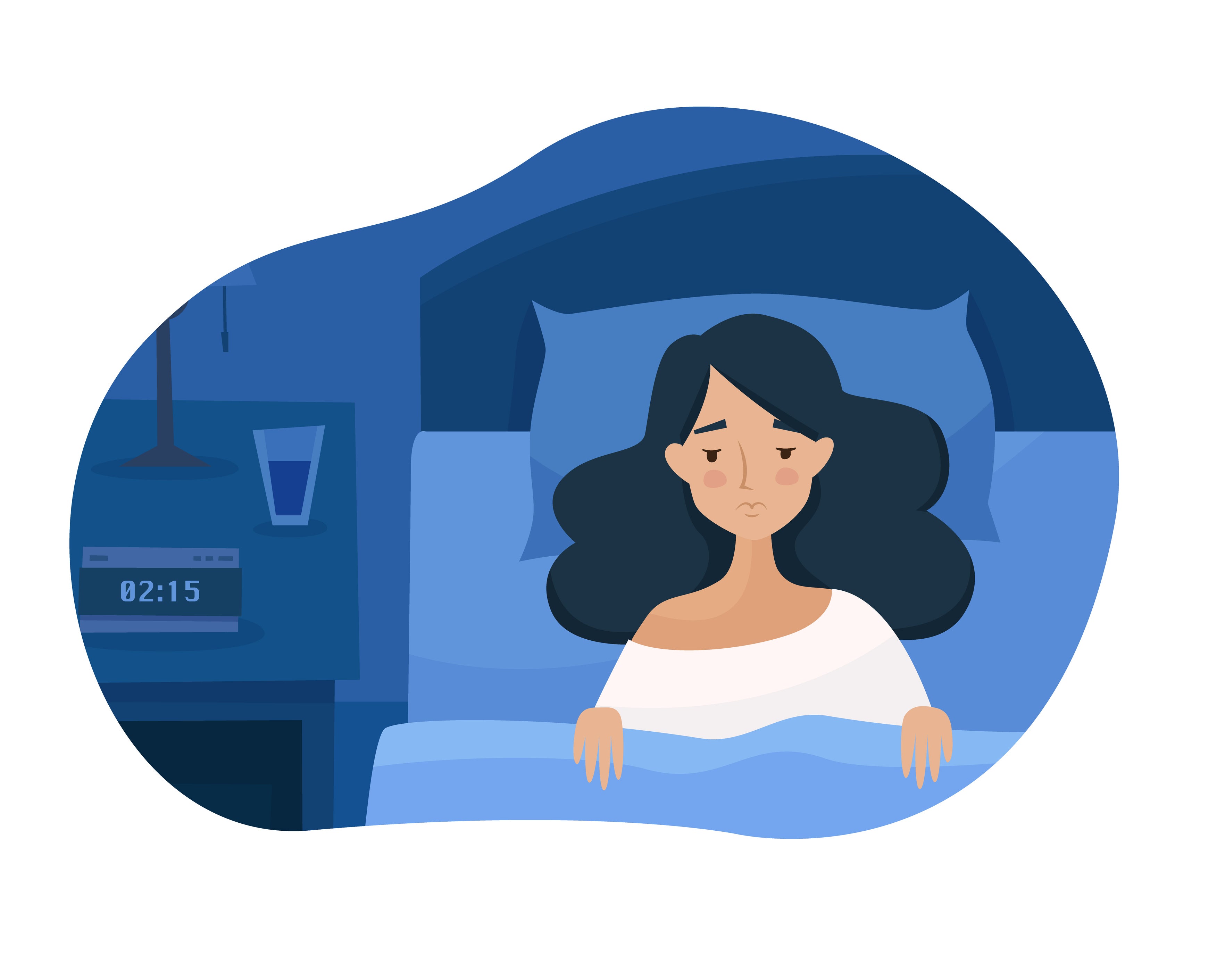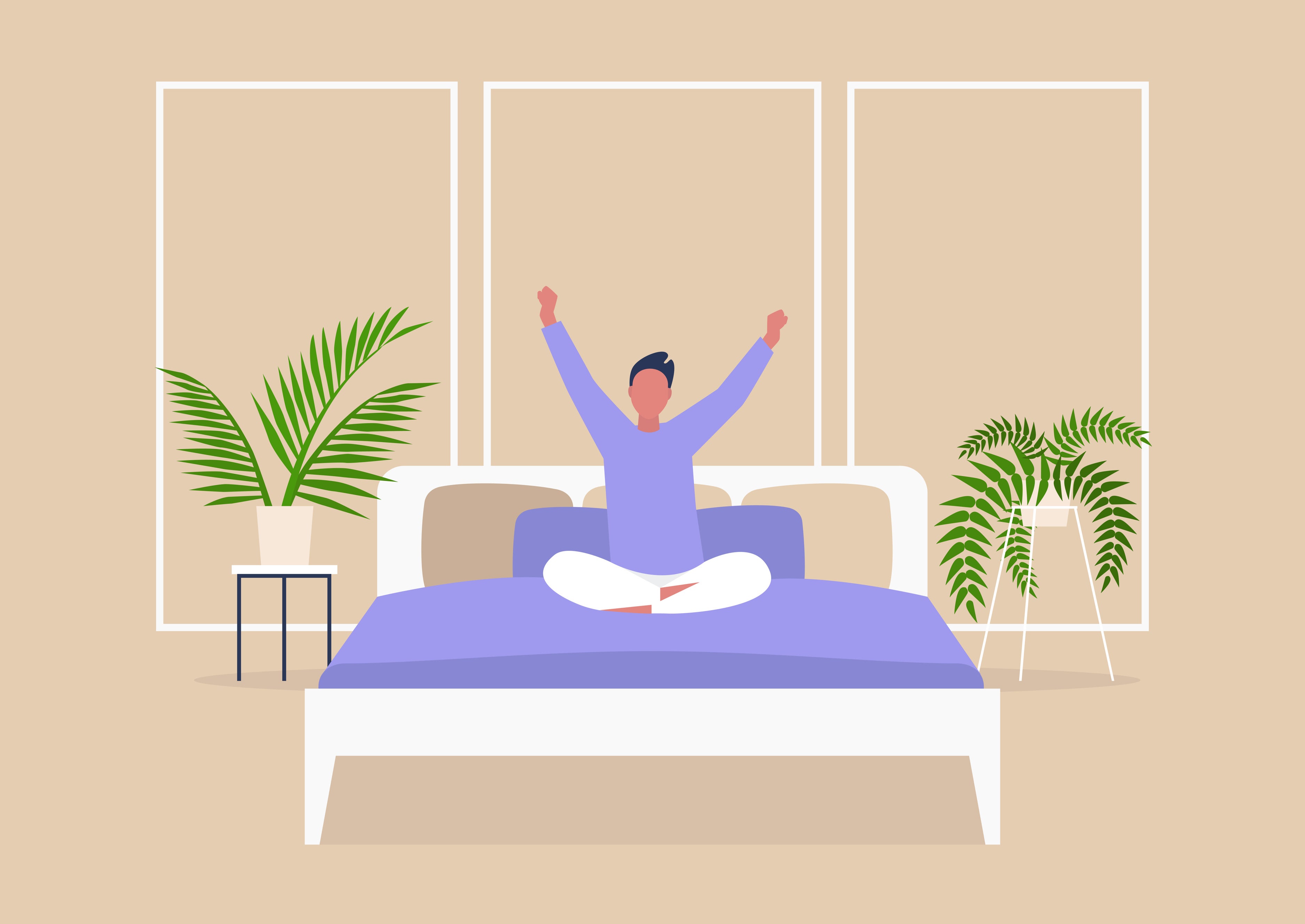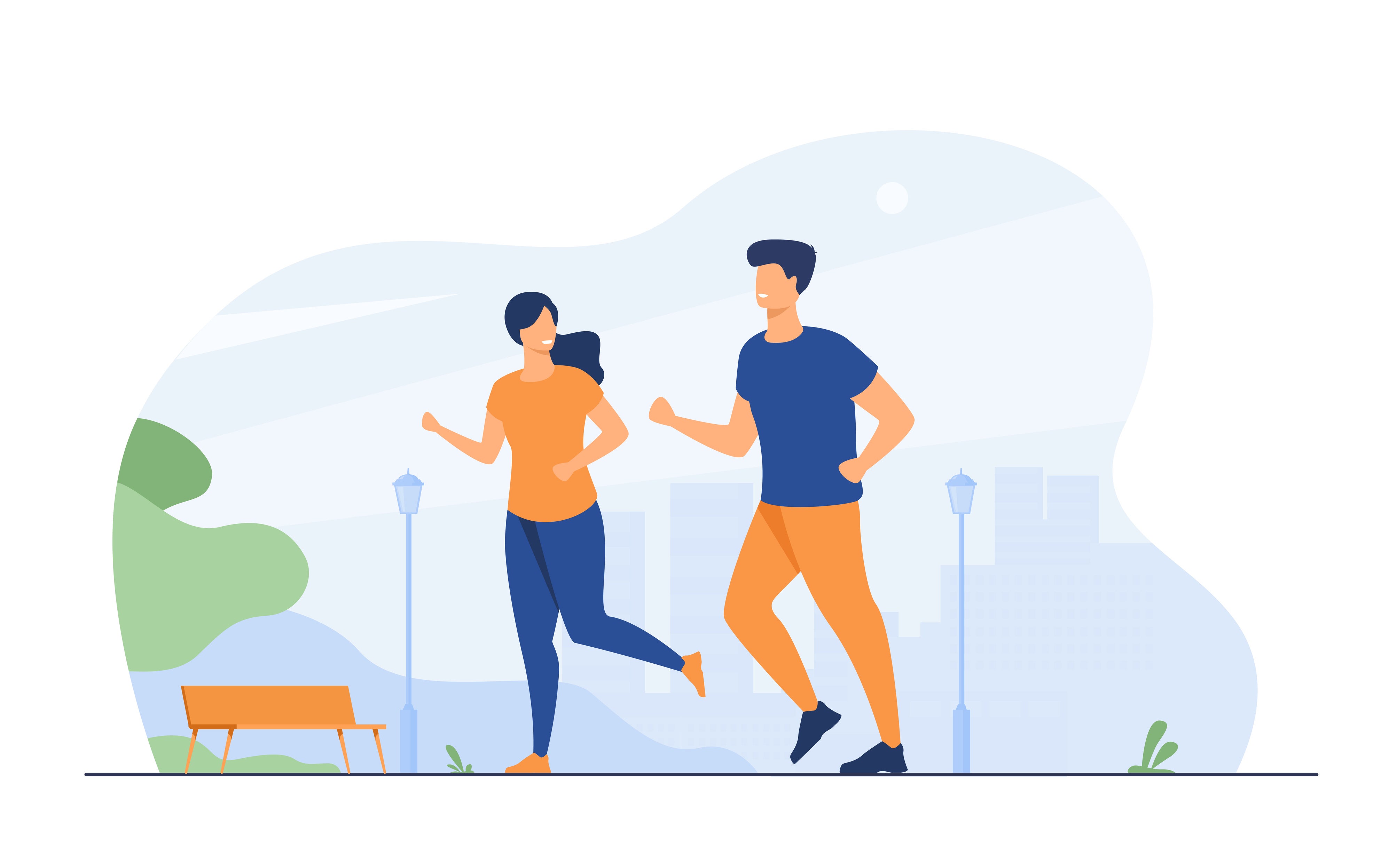The Independent's journalism is supported by our readers. When you purchase through links on our site, we may earn commission.
Struggling to sleep? These tips will get you back to sleeping like a baby
If the pandemic has taken its toll on your shut eye, you’ll need to throw out the bad habits and pick up some new ones, writes Anahad O’Connor

Is your sleep not what it used to be? Does your mind race when your head hits the pillow? Do you wake up at 4am and struggle to fall back asleep? Are you feeling drowsy and sleep-deprived no matter how many hours you spend in bed?
For many people, sleeping poorly was the norm before the pandemic. Then the stress, anxiety and disruptions made our nightly slumber worse, giving rise to terms such as “coronasomnia” to describe the surge in sleep disturbances last year. But recently, sleep experts noticed something that astonished them: more than a year into the pandemic, our collective sleep only continued to deteriorate.
In a survey of thousands of adults last summer, the American Academy of Sleep Medicine found that 20 per cent of people said they had trouble sleeping because of the pandemic. But when the academy repeated its survey 10 months later, in March, those numbers rose drastically. Roughly 60 per cent of people said they struggled with pandemic-related insomnia, and nearly half reported that the quality of their sleep had diminished — even though infection rates have fallen and the country is opening back up.
“A lot of people thought that our sleep should be getting better because we can see the light at the end of the tunnel — but it’s worse now than it was last year,” says Dr Fariha Abbasi-Feinberg, a sleep medicine specialist and spokesperson for the American Academy of Sleep Medicine. “People are still really struggling.”
Chronically bad sleep is more than just a nuisance. It weakens the immune system, reduces memory and attention span, and increases the likelihood of chronic conditions such as depression, type 2 diabetes and heart disease. The shorter your sleep, studies suggest, the shorter your life span. And for people over 50, sleeping less than six hours a night may even heighten the risk of dementia.
“Over the past year, we’ve had the perfect storm of every possible bad thing that you can do for your sleep,” says Dr Sabra Abbott, an assistant professor of neurology in sleep medicine at Northwestern University Feinberg School of Medicine in Chicago.
Those who benefited the most were people who naturally tend to go to bed late but no longer had to set an early alarm to commute to work or get their children ready for school
Studies show that in the pandemic, people tended to keep irregular sleep schedules, going to bed far later and sleeping in longer than usual, which can disrupt our circadian rhythms. We slashed our physical activity levels and spent more time indoors; gained weight and drank more alcohol; and erased the lines that separate work and school from our homes and our bedrooms — all of which are damaging to sleep.
Most striking of all, our stress and anxiety levels skyrocketed, which are two of the root causes of insomnia. In a report published in May, the American Psychiatric Association found that a majority of Americans were still anxious about their health, their finances and the possibility of a loved one getting Covid-19. More than half of parents said they were worried about the mental state of their children, and 41 per cent of adults said they had more anxiety today than they did during the first few months of the pandemic.
Not everyone, of course, is suffering from disrupted sleep. A team of international researchers who studied 3 million people in New York, London, Los Angeles, Seoul and Stockholm found that on average, people gained an extra 25 minutes of sleep each night during the pandemic compared with a year earlier. Those who benefited the most were people who naturally tend to go to bed late but no longer had to set an early alarm to commute to work or get their children ready for school, says Matthew Walker, a professor of neuroscience and psychology at the University of California, Berkeley, and author of the bestselling book Why We Sleep.
“If there is a success story, it is revenge of the night owls when it comes to Covid and sleep,” Walker says. “The night owls are finally starting to sleep a little more in synchrony with their biology.”
But for millions of others who suffer from insomnia, the extra time in bed can paradoxically make matters worse. When people struggle to fall or stay asleep, their brains associate their beds with stressful experiences. “Your brain learns that your bed is the place where you don’t fall asleep,” Abbott says. “The more time you spend in bed, the more you reinforce that idea.”
One of the standard treatments for insomnia is a strategy called sleep restriction, which makes people better and more efficient sleepers by teaching them to spend less time in bed, not more.
So what more can we do to get our disrupted sleep back on track? Read on.
How to beat insomnia
It’s normal to have trouble sleeping during big changes in your life. But when the sleep disruptions last longer than three months, it can qualify as chronic insomnia, which can have long-term health consequences. One of the most effective treatments is cognitive behavioral therapy, or CBT. This approach helps you address the underlying thoughts, feelings and behaviors that are ruining your sleep. Here are some CBT-inspired ways to combat insomnia.
Follow the 25 minute rule

If you get into bed and can’t fall asleep after 25 minutes, or you wake up at night and can’t get back to sleep after 25 minutes, then don’t stay in bed. Get up and do a quiet activity that calms your mind and makes you drowsy. “Just get up, don’t fret,” Walker says. “If you stay in bed awake for long periods of time, your brain thinks, ‘Every time I get into bed, this is the place where I should be awake.’ And you need to break that association.”
Do any activity that relaxes you. Get up and stretch. Sit on your couch and meditate or read a magazine. Read a book in dim light. Do deep-breathing exercises. Listen to a soothing podcast. You could sit in a chair and draw or knit. Then, when you start to feel drowsy again, get back into bed and try to go to sleep. Just don’t get into bed unless you are tired. “You would never sit at the dinner table waiting to get hungry,” Walker says. “So why would you lie in bed waiting to get sleepy?”
Throw away your worries
Sit down with a blank piece of paper one to two hours before bed each night. Then write down all of your thoughts, especially anything that is bothering you. It could be what you’re going to do at work tomorrow, the phone calls you have to make or the bills you have to pay. “If most of what you’ve written down is stuff that you’re worried about, then crumple up the paper and throw it in the trash — that’s called discharging your thoughts,” says Dr Ilene M. Rosen, a sleep medicine doctor and associate professor of medicine at the Perelman School of Medicine at the University of Pennsylvania. The act of dumping your thoughts on a piece of paper and throwing it away is a symbolic gesture that empowers you and calms your mind, Rosen says. “You had those thoughts and now they’re gone.”
Screens in the bedroom
One reason sleep has suffered this past year is that people are sacrificing their slumber to catch up on all the fun things that they missed out on during the day, such as scrolling through Instagram and watching YouTube videos. This phenomenon, known as revenge bedtime procrastination, is made worse by our attachment to our phones and screens, which often follow us into our beds. (How many times have you been glued to your phone long past your bedtime?)
We all know that we shouldn’t look at bright screens late at night because the blue light they emit tells your brain that it’s time to be awake. But many of us do it anyway. So follow this guideline: if you are going to use your phone or device after your bedtime, then use it only while standing. When you feel like sitting or lying down, you have to put the device away. “You’ll find after about 10 minutes of standing up at your normal bedtime that you’re going to say, ‘I need to lie down’ — and that’s your body telling you that you need to put the phone away and get to sleep,” Walker says.

Daily habits for better sleep
Good sleep starts long before bedtime. Many of the things you do during the day will impact the quality of your slumber. So try these sleep-promoting habits.
Wake up at the same time
Our bodies follow a daily circadian rhythm, and waking up at different times throws it out of whack. It is best to keep your wake-up time consistent. Don’t sleep in, even on weekends. “When the alarm goes off, get out of bed and start your day regardless of how much you’ve slept,” Rosen says. “You may not feel great for a few days, but you’re reinforcing that when you’re in bed, you sleep.” The same goes for your bedtime: keep it consistent. The less you deviate from your normal bed and wake-up times, the better you’ll sleep.
Get sunlight every morning
If you don’t commute to work, it can be easy to spend your entire mornings inside. But exposure to sunlight serves an important purpose: it shuts down the release of melatonin, a hormone that promotes sleep. “Most brain fog in the morning is caused by continued melatonin production,” says Michael Breus, a clinical psychologist and author of The Power of When. “When sunlight hits your eye, it sends a signal to your brain to tell the melatonin faucet to turn off.” Aim to get at least 15 minutes of sunlight first thing every morning.
Make your bed a haven
Working from home — sometimes from our beds — has erased a lot of the boundaries between work and sleep. But turning your mattress into an office can condition your brain to view your bed as a place that makes you stressed and alert, which can lead to insomnia. That’s why sleep experts say you have to reserve your bed for two activities only. “The bed is for sleeping or sex,” Rosen says. “If you’re not doing either of those things, then get out of bed. If you have the luxury of going to a different room, then that’s even better. You have to break the association of being awake in bed.”

Exercise for better sleep
The pandemic led people to cut back on physical activity. But exercise is the easiest way to improve sleep, Breus says. “Sleep is recovery,” he added. “If you don’t have anything to recover from, your sleep isn’t going to be that great.” At least 29 studies have found that daily exercise, regardless of the type or intensity, helps people fall asleep faster and stay asleep longer, especially among people who are middle-aged or older. According to the Sleep Foundation, people with chronic insomnia can fall asleep about 13 minutes faster and gain up to 20 extra minutes of sleep per night by starting an exercise routine. One caveat: end your exercise at least four hours before bedtime; otherwise, it could interfere with your sleep by raising your core body temperature, Breus says.
Cut off caffeine at 2pm
Caffeine has a half-life of six to eight hours and a quarter-life of about 12 hours. That means that if you drink coffee at 4pm, “you’ll still have a quarter of the caffeine floating around in your brain at 4am,” Breus says. Avoiding caffeine in the evening is a no-brainer. But, ideally, you should steer clear of caffeine after 2pm so your body has enough time to metabolise and clear most of it from your system.
Follow the two-drink rule
If you drink alcohol, limit yourself to two drinks in the evening and stop at least three hours before bed. Alternate each drink with a glass of water. Because alcohol is a sedative, some people drink a nightcap to help them fall asleep faster. But alcohol suppresses rapid eye movement (REM) sleep and causes sleep disruptions, which will worsen the overall quality of your sleep. “The closer you drink to your bedtime, the worse your sleep is going to be,” Breus says.
This article originally appeared in The New York Times.
Join our commenting forum
Join thought-provoking conversations, follow other Independent readers and see their replies
0Comments